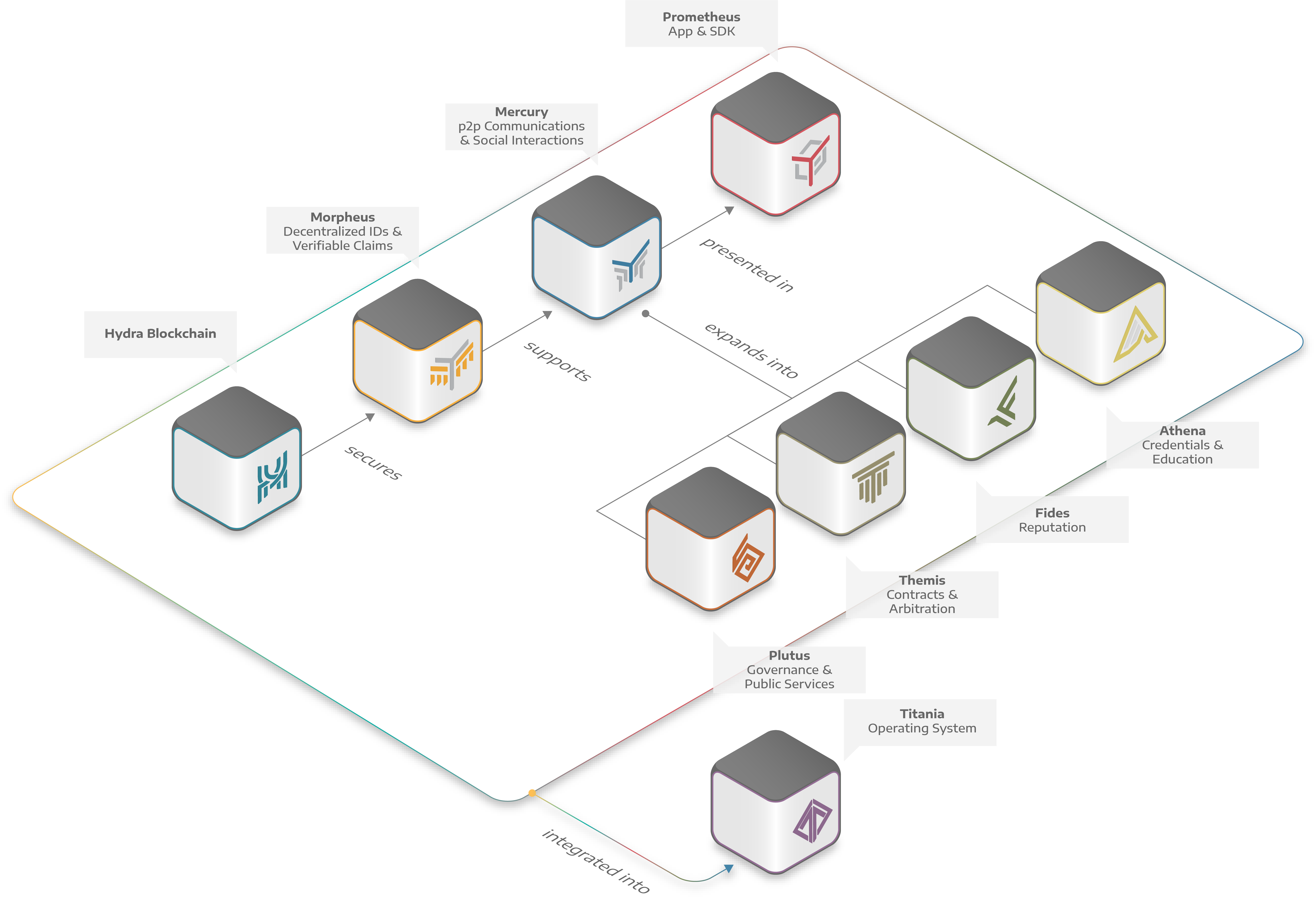THE HYDRALEDGER TOKEN PROVIDES A DECENTRALIZED SOURCE OF TRUST FOR THE
Hydra STACK.
The token is the reward for the users who maintain the network, while limiting the costs and fees.
| Hydra Transactions | Typical Bytes | Typical Fee |
| transfer | 100 | 0.003Ħ |
| vote | 100 | 0.003Ħ |
| unvote | 100 | 0.003Ħ |
| register delegate | 400000 | 12.0Ħ |
| resign delegate | 400000 | 12.0Ħ |
| extra: vendor field | 255 | 0.00765Ħ |
| SSI operations | Typical Bytes | Typical Fee |
| (many of these can all be put into a single atomic transaction) | ||
| proof of existence | 40 | 0.0012Ħ |
| "create DID" | 0 | 0Ħ |
| add key | 360 | 0.0108Ħ |
| remove key | 360 | 0.0108Ħ |
| add right | 360 | 0.0108Ħ |
| remove right | 360 | 0.0108Ħ |
| tombstone DID | 360 | 0.0108Ħ |
| DNS operations | Typical Bytes | Typical Fee |
| (many of these can all be put into a single atomic transaction) | ||
| register | 400 | 0.012Ħ |
| update | 400 | 0.012Ħ |
| transfer | 400 | 0.012Ħ |
| renew | 400 | 0.012Ħ |
| delete | 400 | 0.012Ħ |
| Credential operations | Typical Bytes | Typical Fee |
| (completely off-chain, federated network of authority and inspection services) | ||
| witness request | N/A | N/A |
| inspect presentation | N/A | N/A |
What we actually store on the Hydra ledger?
We only store facts that require ordering or timestamping in a decentralized manner such as changes in authentication and authorization, or hashes of signed documents. These facts do not contain any sensitive or personal data, hence storing them is more than GDPR compliant.
For example when we want to validate a legal document that was signed by a CEO with a key, we also want to know whether that key was in use by the person signing the document at the moment, and whether they had the CEO role at the moment of signing. That is why you can register and revoke rights of keys to an identity and timestamping document hashes on the ledger.
How you can manage DID documents?
You can create an infinite amount of DIDs for FREE in your wallet. You only need to interact with the Hydra ledger if you would like to change its authentication or authorization methods.
Doing that you will have a decentralized IAM solution, which we call Hydraledger SSI (Self-Sovereign Identity framework).
WHAT IS ON THE HYDRA PUBLIC LEDGER?
Hence, we don’t store any private and/or sensitive data publicly available. To read more about the architecture of the Hydra network, please visit our Developer Portal:

